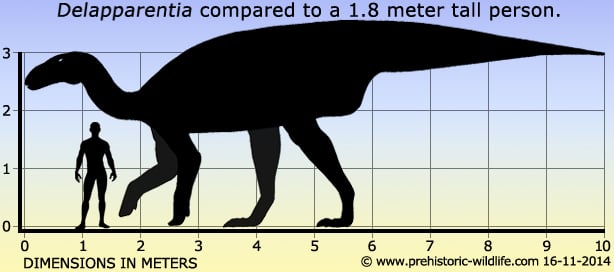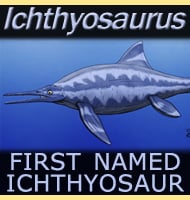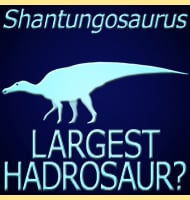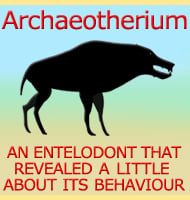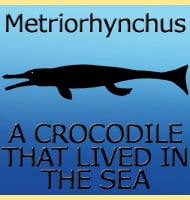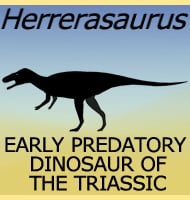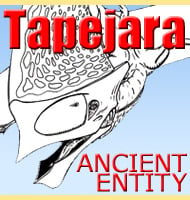In Depth
Not a lot of information is currently available about Delapparentia, though as a relative to herbivorous dinosaurs like Iguanodon, a few things can be inferred. Delapparentia would have been a fairly large ornithopod dinosaur that would have balanced most of its body weight upon its rear legs, while the fore legs were reduced in size and development. The fore legs would have still been capable of bearing weight, and Delapparentia likely went about in a primarily quadrupedal posture, though it was still capable of bipedal locomotion for short periods. This ability to switch in posture meant that Delapparentia like other iguanodonts could browse upon a greater variety of plants growing at different heights. Even though the skull of Delapparentia is unknown, it would have likely had a keratinous beak around the anterior portion of the mouth so that it could snip off vegetation before it was processed by the teeth towards the rear of the mouth.
As a herbivore, Delapparentia may have been hunted by theropod dinosaurs along the lines of Neovenator and Eotyrannus, both living at the same time as Delapparentia, though both of these genera are currently only known from slightly further north in what is now England.
Further Reading
- Delapparentia turolensis nov. gen et sp., un nuevo dinosaurio iguanodontoideo (Ornithischia: Ornithopoda) en el Cret�cico Inferior de Galve [Delapparentia turolensis nov. gen et sp., a new iguanodontoid dinosaur (Ornithischia: Ornithopoda) from the Lower Cretaceous of Galve (Spain), Jose Ignacio Ruiz-Ome�aca - 2011.
